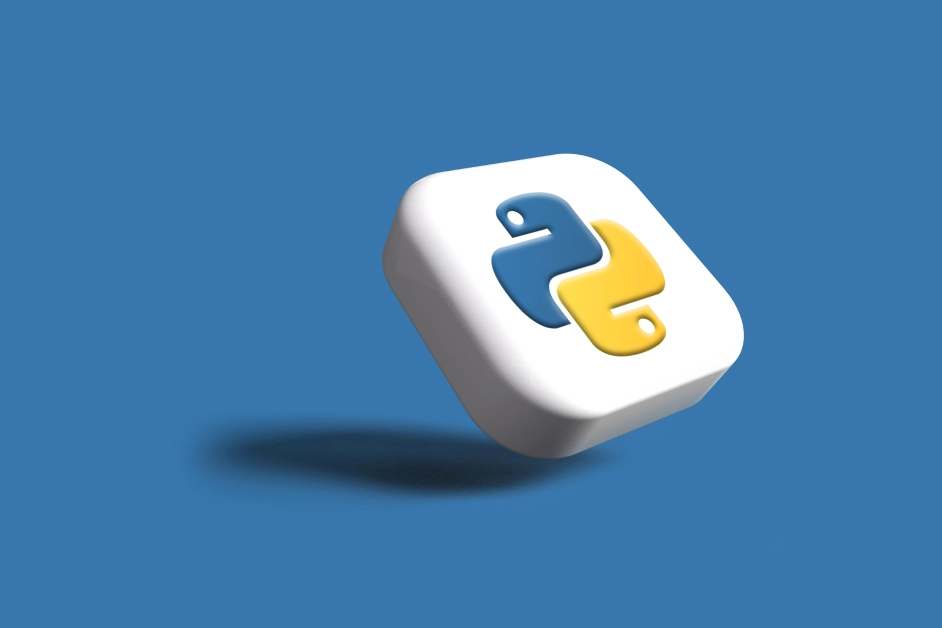Explore the various real-world applications and examples of Python, a popular programming language. Discover the key areas where Python is commonly used.
Python is a programming language commonly used for a range of coding needs. But what is Python? How is the Python programming language used in everyday tasks?
Let’s dive deeper into the popularity of Python to find out why it’s a necessary skill for programmers.
What is Python?
Python is an open-source programming language known for its impressive readability and simplicity. It uses an interpreter to directly execute programs, making it a great first language for beginning coders. Python’s reputation is that of clear and understandable code with minimal complexity.
What is Python Used For?
Because of its ease of use and versatility, Python is suitable for many use cases. Programmers use it across industries, fields, and contexts to create software. Once you learn Python, there’s not much you can’t do. As far as programming languages go, Python’s usefulness makes it a popular choice for many coders to use, including absolute beginners.
What can you do with Python? Here are some common Python applications to get you started – even if you’re a beginner.
1. Web Development
Web development has two parts: front-end and back-end development. Front-end is what users see and interact with – a more creative side that deals with graphics, fonts, and more. Back-end development is the part of a website or app that users don’t see. It involves building the server-side, or “behind-the-scenes” features of websites and web applications.
Back-end developers focus on managing databases, processing user input, and handling server requests. They’re responsible for making sure the website or app works smoothly. Programmers who do both front-end and back-end are called full-stack developers.
Python works well as a back-end web development language because it offers simplicity, versatility, and many useful open-source libraries. Its clear and readable syntax makes it easy for back-end and full-stack programmers to write and maintain code. It’s also super scalable, allowing it to be used for programs that require massive bandwidth and more complex web applications. Netflix and Google, for example, were built on Python.
Learn More: The Best Coding Languages for Web Development
2. Data Science & Analysis
Data is an invaluable asset in nearly every industry. Many companies handle enormous amounts of data, whether to track customer spending, manage patient records, or secure personal finances. Python is the go-to language for all this heavy data analysis. Its extensive standard library and specialized modules empower users to analyze, manipulate, and explore enormous data sets quickly.
Python also offers a wide range of other libraries for tasks such as data visualization, web scraping, and hypothesis testing. With the increasing importance of data analytics across global industries, Python’s simplicity and flexibility make it an ideal choice for those looking to learn to code for data science. Its ability to handle large datasets and automate repetitive tasks adds to its appeal in this ever-growing field.
3. Software Development
Python is often used as a language for each stage of software development, including build control, automated testing, bug tracking, and project management. Python’s flexibility and power make it suitable for creating simple and complex applications involving audio/video processing, application programming interface (APIs), and graphical user interface (GUIs). In other words, it’s a fantastic all-purpose tool for software developers.
Python is an object-oriented and interpreted language, so compiling the code before runtime is unnecessary, decreasing total working hours. And since Python is open source, users can easily access new and optimized frameworks anytime.
4. Artificial Intelligence & Machine Learning
There’s little doubt that artificial intelligence (AI) and machine learning (ML) are integral to the future of coding and programming. And Python will be there. This simple, straightforward language is being used to build massively complex programming.
Python’s ML libraries can easily and quickly build powerful models for ML and AI in as few as three lines of code. Some libraries are specific to advanced computing, making them ideal for coders writing AI or ML. Python’s stability, flexibility, and simplicity enable programmers and data scientists to focus on larger and more complex ML problems, thus increasing productivity. Because it’s so easy to learn, almost anyone can use Python to build predictive models and AI algorithms.
Learn More:
5. Game Development
Gaming is more popular than ever, and modern games are increasingly life-like and complex. And while seasoned programmers might not think of Python first when it comes to writing game code, it’s still useful in many ways, particularly for simpler games. Disney’s Toontown Online and Sid Meier’s Civilization IV both use Python for parts of their games.
Creators can develop games quickly with Python, making it great for prototyping new games and testing new ideas in the gaming industry. It’s also easy to debug, increasing the speed with which developers can create and test new games.
Python allows users to create entire video games with a single language and use its scripting capabilities to update and optimize existing games. Since Python is so easy to learn, programmers can easily create 3D graphics, dialogue trees, and menus.
Learn More: The Best Programming Languages for Game Development
6. Finance
Python is hugely popular in the finance industry, particularly for large data analyses. Its versatility makes it a fantastic tool for analyzing price trends, making market predictions, and automating workflows across multiple data sources. Python can handle large datasets, as well as the availability of open-source libraries designed for data compilation and processing.
Financial giants such as Bank of America and JP Morgan have embraced Python-based software and apps, recognizing its ability to modernize and streamline their tech infrastructure. Its ease of scalability makes it ideal for banking software, including ATMs. It’s used to automate trading and manage risk as well.
Learn More: Coding and Finance: Learning How to Code with a Finance Background
7. Automation
Python is ideal for automating repetitive tasks through scripting. By harnessing the flexibility and efficiency of Python, coders can streamline operations related to files and folders, such as creating, renaming, converting, and updating content. Python also enables the automation of internet searches, information retrieval, online form completion, and regular notifications or emails – think about filters you might use to automatically sort your incoming emails or the autofill function in a Google search.
Python’s data structures allow for increased software performance when automating tasks with easy access to data and remarkable storage capabilities. This makes Python helpful in specific industries and for everyday use by anyone who uses apps and websites.
8. Network Programming
Python is an essential skill for network engineers. Combined with network automation, it offers a powerful solution for simplifying complex modern networks and easily making changes. Using Python-powered automation reduces the risk of human errors, ensuring increased reliability and security.
Python provides two levels of access to network services: low-level access for clients and servers and high-level libraries for specific application-level network protocols like FTP and HTTP. Networking teams can streamline their tasks, freeing up time for more significant, more complex tasks.
9. Internet of Things (IoT)
Python helps power the Internet of Things, a connected device system that shares information. Programmers use Python for both the IoT’s back-end development and the software used by devices. It also helps speed up performance, enhance user experience, database storage, and more. Because Python is so easy to use, it can quickly integrate new technologies and updates.
The IoT will need constant updating as more devices are connected to cloud systems. Python is commonly considered the language of choice for supporting the future of IoT.
Start Developing Your Python Coding Skills with App Academy
If you’re ready to learn Python or to take your coding skills to the next level, App Academy can help you. We offer both full-time and part-time bootcamps to suit your schedule. And App Academy Open gives you access to our entire curriculum for free!
Join the thousands of satisfied students who learned to code with App Academy. Contact us today to speak with an App Academy expert to learn more. And, if you’re ready to dig in deeper, start exploring our programs to see which one might be a good fit for you!
Full-Time Online Coding Bootcamp - Full-Time, Online Software Engineer Program
Part-Time Online Coding Bootcamp - Part-Time, Online Software Engineering Program
Learn to Code for Free - App Academy Open
Don’t miss a beat with The Cohort!
We’ll send you the latest Tech industry news, SWE career tips and student stories each month.













